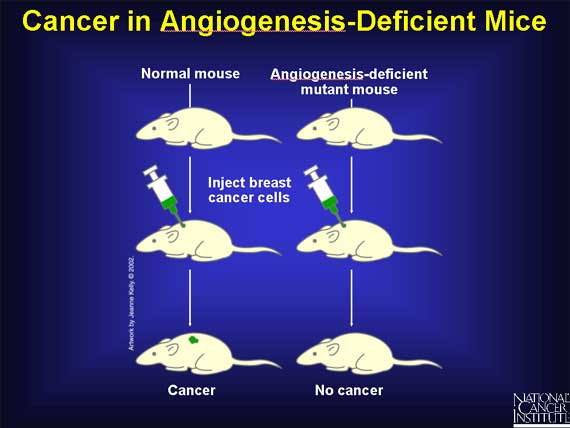|
Additional support for the idea that interfering with the process of angiogenesis can restrain tumor growth has come from genetic studies of mice. Scientists have recently created strains of mice that lack two genes, called Id1 and Id3, whose absence hinders angiogenesis. When mouse breast cancer cells are injected into such angiogenesis-deficient mutant mice, there is a small period of tumor growth, but the tumors regress completely after a few weeks, and the mice remain healthy with no signs of cancer. In contrast, normal mice injected with the same breast cancer cells die of cancer within a few weeks.
When lung cancer cells are injected into the same strain of angiogenesis-deficient mutant mice, the results are slightly different. The lung cancer cells do develop into tumors in the mutant, but the tumors grow more slowly than in normal mice and fail to spread (metastasize) to other organs. As a result, the mutant mice live much longer than normal mice injected with the same kinds of lung cancer cells.

< Previous | Index | Next Slide > |